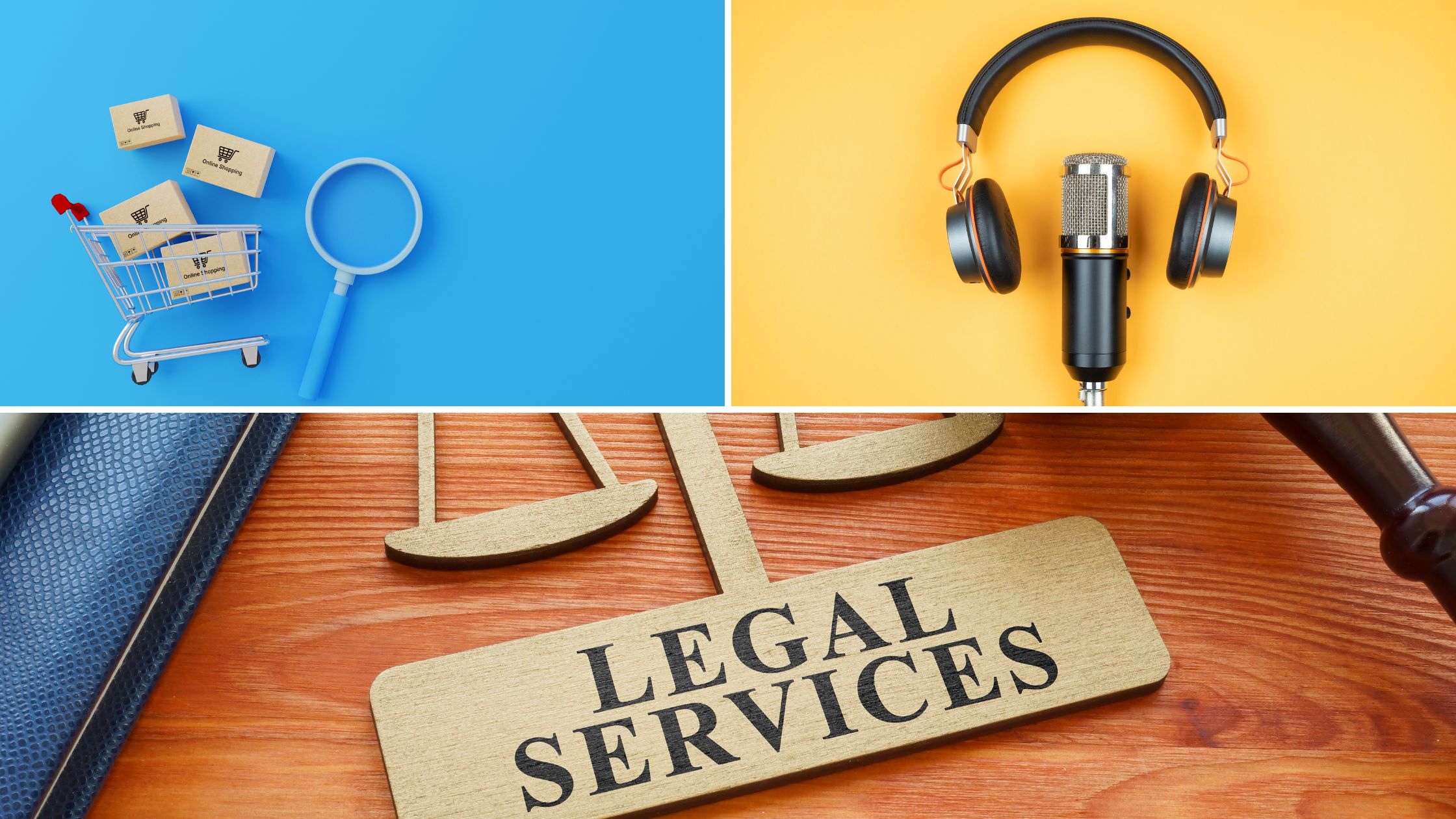Podcasting is quickly becoming one of the most powerful ways for e-commerce brands to build authority, connect with customers, and drive sales. Whether it’s a behind-the-scenes look at your online store, interviews with suppliers, or actionable tips for fellow entrepreneurs, launching a podcast can position your business as a trusted voice in the industry. But before hitting “record,” there’s something many creators overlook: the legal side of podcasting. From naming rights to sponsorship disclosures, podcasting comes with real legal responsibilities, especially when tied to a business. If you’re planning to launch an e-commerce podcast, these are the 7 legal essentials you need to know before going live.
Trademark Your Podcast Name (and Check Availability First)
Choosing a catchy podcast name is exciting, but using a name that’s already trademarked could land you in legal trouble before your first episode even airs.
Start by checking the name’s availability:
-
Do a quick search on Apple Podcasts, Spotify, and Google to ensure no one else is using the same or a similar name.
-
Next, visit the USPTO trademark database to confirm it’s not a registered trademark in your category.
If your podcast name is unique and tied to your brand identity, consider filing a trademark application to protect it. This helps prevent others from copying your podcast name as it gains popularity, and gives you the legal backing to enforce your rights if needed.
Get Written Consent from Guests (Podcast Guest Agreements)
Inviting guests to share their stories and expertise is a great way to grow your show, but don’t rely on verbal agreements alone.
A written podcast guest release form ensures you have the right to:
-
Record their voice
-
Use their name and likeness in marketing materials
-
Edit and distribute the episode as you see fit
This is especially important if you’re discussing business-related or sensitive topics. A guest who later regrets something they said could ask to have an episode removed—or worse, take legal action. With a signed release, you’re protected.
Use Licensed Music and Sound Effects
That intro music or sound transition may sound perfect, but if it’s not properly licensed, it could cost you. Copyright infringement lawsuits over audio are real, and they can be expensive.
Avoid legal trouble by:
-
Using royalty-free or Creative Commons music from platforms like AudioJungle, Epidemic Sound, or Free Music Archive
-
Making sure your license covers podcast use (not all royalty-free music does)
-
Avoiding copyrighted songs, even short clips—“fair use” rarely holds up in audio-only content
A safer route? Hire a composer or buy a unique music package that gives you full rights.
Comply with FTC Rules on Promotions and Endorsements
Many e-commerce podcasts naturally promote their own products or collaborate with sponsors. If you’re making money (or even just getting free products) in exchange for promoting something, you must disclose that relationship clearly.
According to FTC guidelines, disclosures must be:
-
Clear and upfront (preferably at the beginning of the episode)
-
Verbal, if in audio form—not just in the show notes
-
Understandable to a general audience (avoid fine print or legal jargon)
Example: “This episode is sponsored by [Brand], and we may earn a commission if you purchase through our link.”
Failure to disclose promotions could result in fines, takedowns, or reputation damage.
Include Disclaimers for Advice and Claims
If your podcast covers things like business strategies, product performance, health advice, or financial tips, you should include a disclaimer.
Even with the best intentions, listeners could act on something you say and experience poor results. A clear disclaimer protects you by reminding the audience that:
-
You’re not providing legal, medical, or financial advice
-
Results may vary by user or business
-
Any opinions shared are for informational purposes only
For e-commerce podcasts, disclaimers are especially useful when discussing customer experiences, testimonials, or case studies.
Know What You Can (and Can’t) Say About Competitors
Discussing competitors on your show might be tempting, but it comes with legal risks. Defamation, libel, and misleading comparisons can lead to serious consequences.
Stick to the facts:
-
Avoid making negative claims about specific people, brands, or products unless they are verifiably true
-
Use neutral, educational language when drawing comparisons
-
Never speculate or imply intent (e.g., “They probably did this to trick customers…”)
Even if you’re reviewing products honestly, aim for objectivity over criticism. Your credibility—and legal safety—depends on it.
Protect Your Podcast Content with Copyright
As the creator, your podcast content is automatically copyrighted the moment it’s recorded—but ownership isn’t always that simple.
If you hire an editor, co-host with a partner, or use third-party content, you’ll want to clarify:
-
Who owns the final content?
-
Can it be republished on other platforms or websites?
-
What happens if the partnership ends?
To safeguard your content:
-
Register important episodes or branding assets with the U.S. Copyright Office
-
Use contracts for collaborations and outsourcing
-
Include your copyright notice in show notes or episode descriptions
This ensures your hard work can’t be used without your permission.
Bonus Tip: Include a Short Disclaimer in Every Episode
It’s smart to record a brief disclaimer that plays in each episode. Something like:
“The opinions shared in this podcast are for informational purposes only and do not constitute legal, financial, or business advice. Always do your own research before making any decisions.”
This simple step reinforces your boundaries and helps protect against claims if something is misinterpreted.
Conclusion: Launch Confidently—Not Legally Blind
Starting an e-commerce podcast is exciting and full of creative opportunities, but like any business venture, it comes with legal responsibilities. From guest permissions to FTC compliance and content protection, a little preparation goes a long way in keeping your show and your brand safe.
By following these 7 legal tips, e-commerce podcast creators can focus on delivering value to their audience without worrying about takedowns, complaints, or lawsuits. And that means more time building trust, sharing insights, and growing the business one episode at a time.




